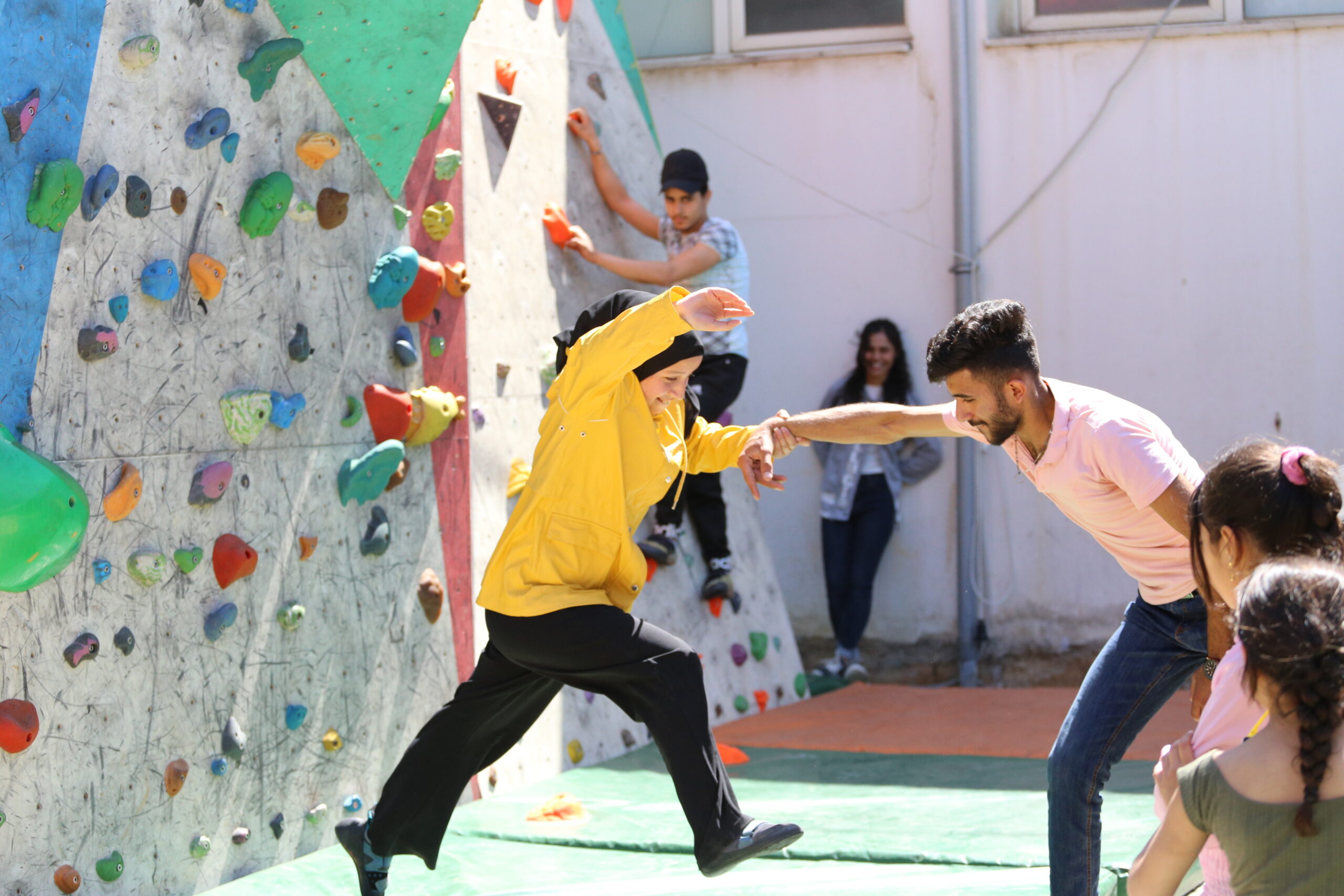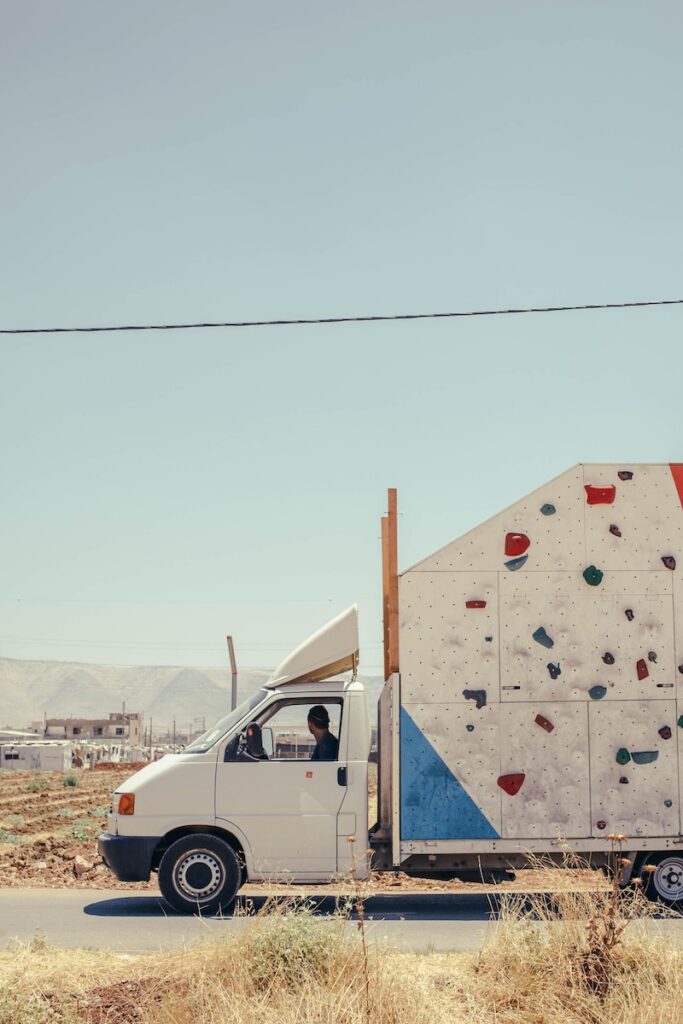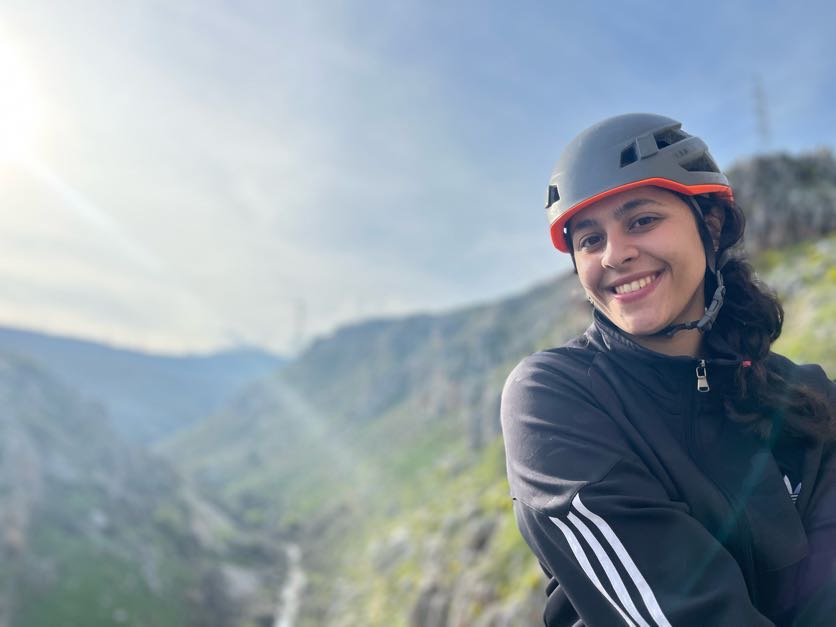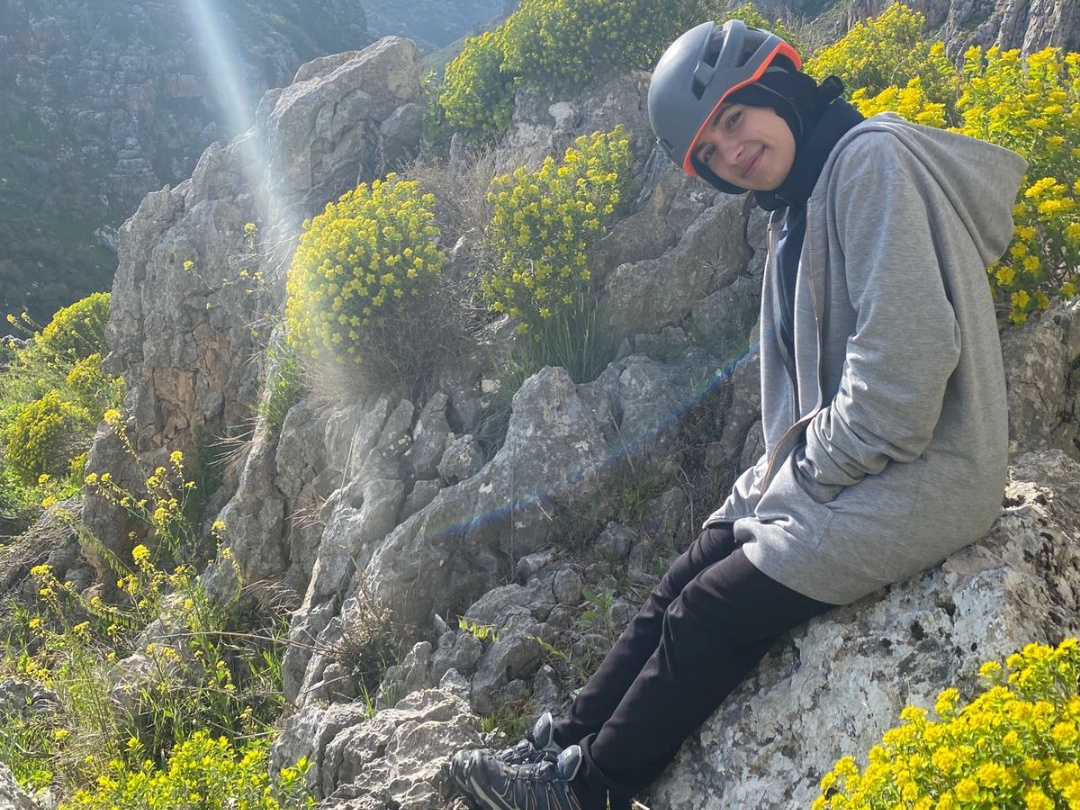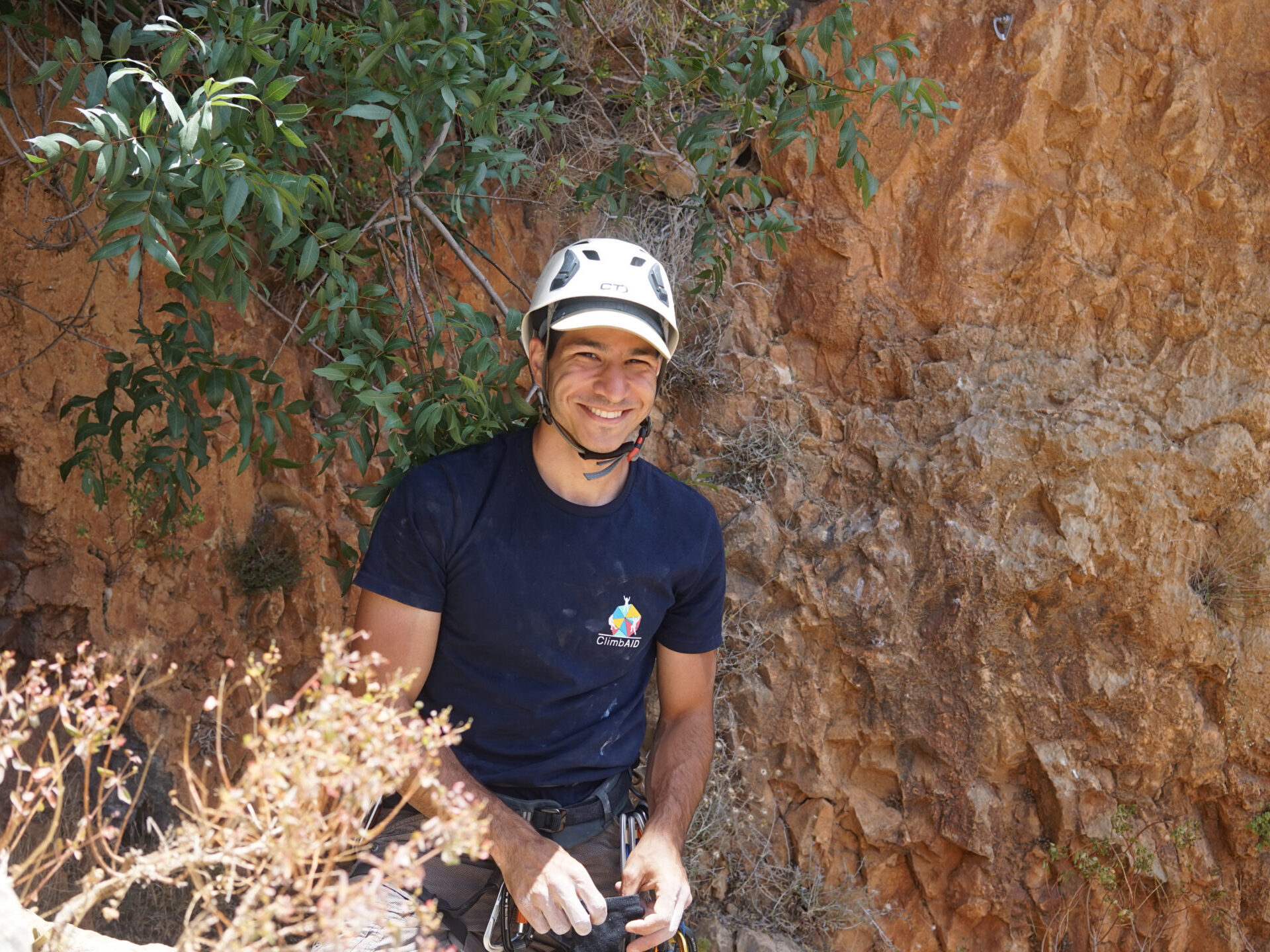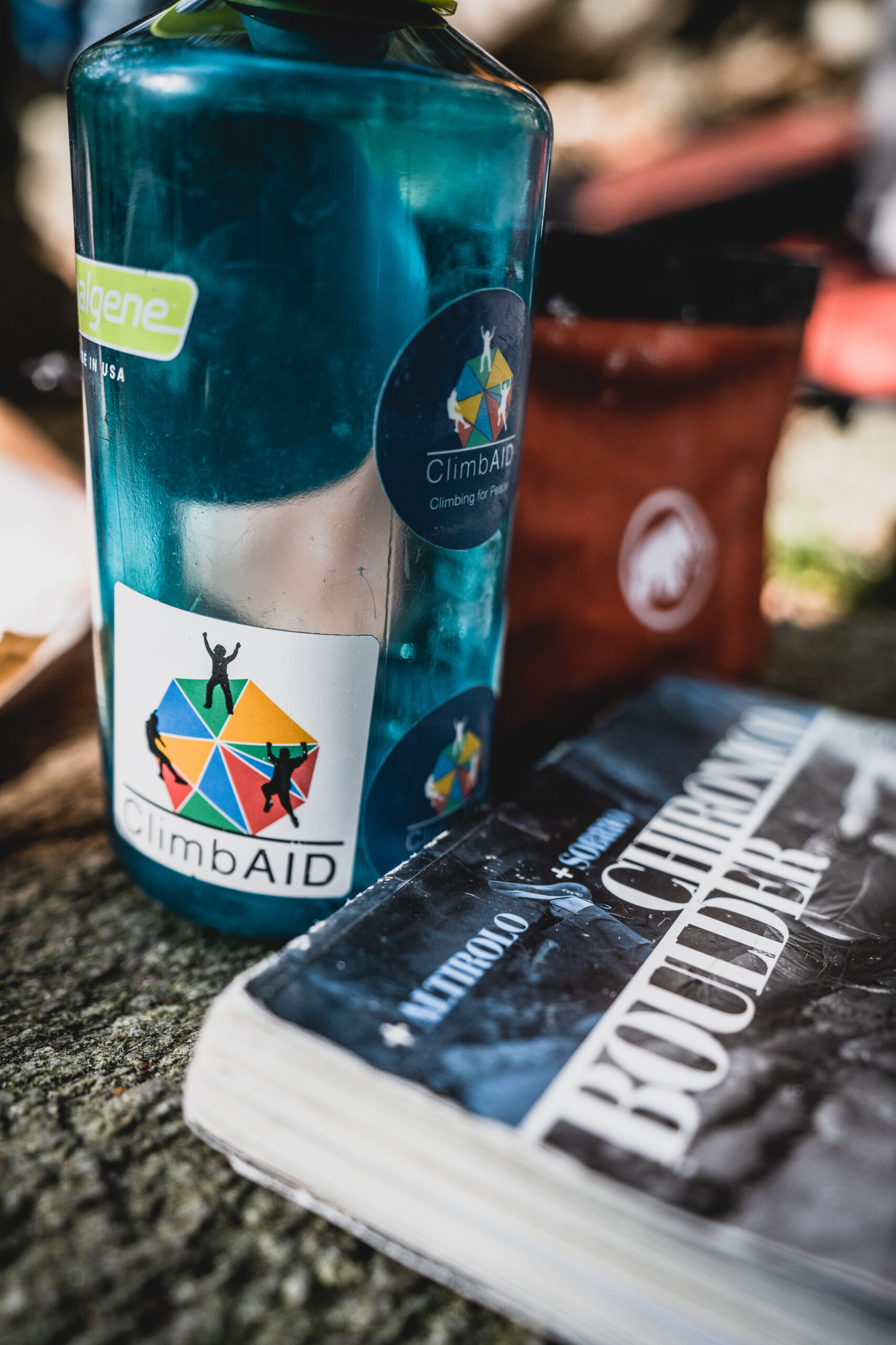SAMA سما
2 years later: How the story continues
SAMA سما
2 years later: How the story continues
2 years later: How the story continues
Tensions have reached a tipping point. The pressure on Syrians to return to their homeland is enormous. In October 2024, the conflict between Hezbollah and Israel escalates into another devastating war, displacing 1.2 million people.
If you have seen Sama, you may be wondering: What happened next? How are they today? On this website you will find updates on the lives of Hiba, Sabine, Yehya, Hassan and others featured in the film. Their dreams of peace and self-determination remain, but they are confronted with a harsh reality characterised by conflict and insecurity.
For those who have not yet seen the film: Sama tells the story of Hiba, a Syrian refugee, and Sabine, a Lebanese local, who have found unity and strength through climbing in Lebanon’s Bekaa Valley. With the support of ClimbAID, they face social and personal challenges while striving for independence and becoming leaders.
On this website, you will learn more about the people behind Sama, ClimbAID’s evolving mission and the resilience of a community trying to persevere against all adversity.
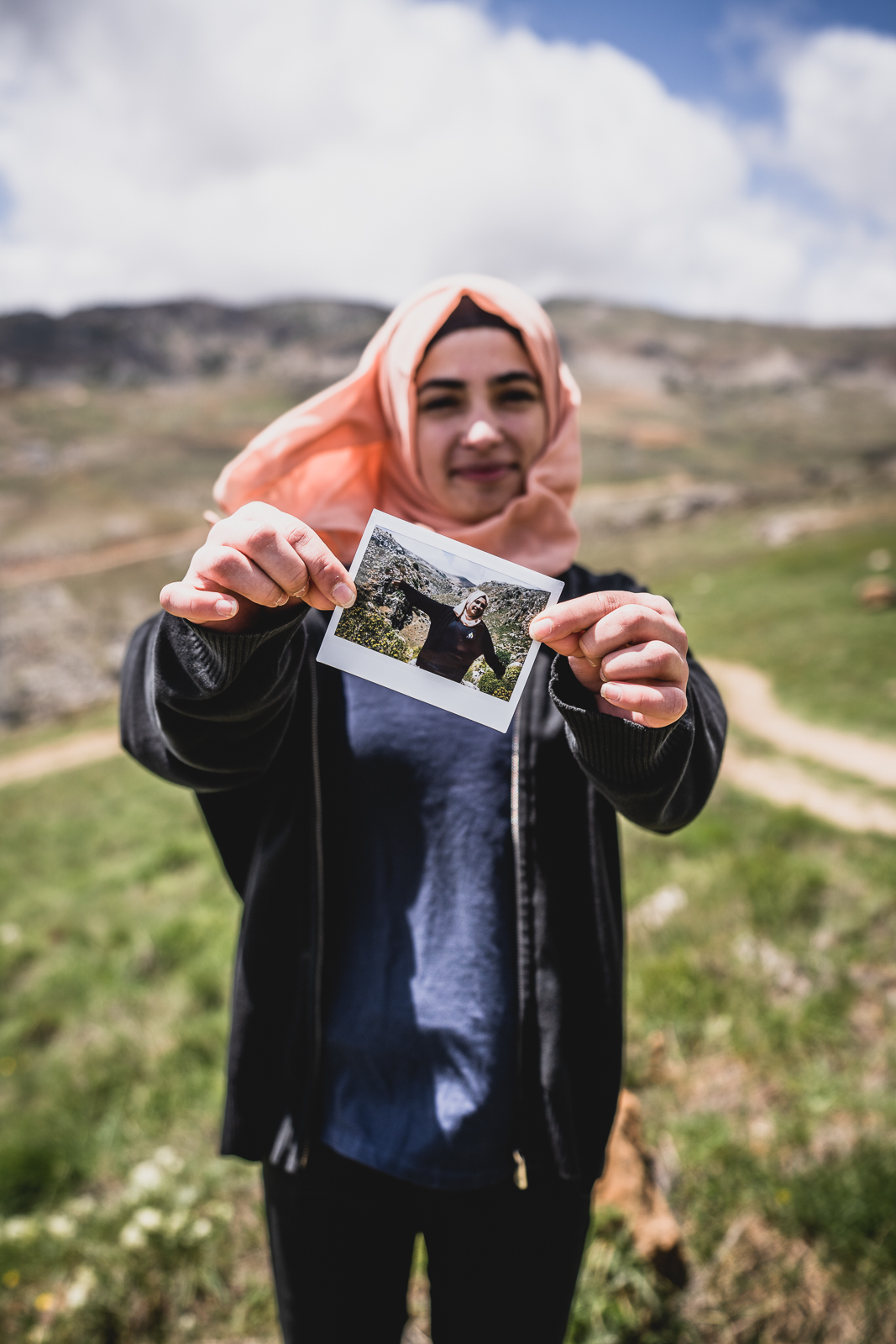
Between Two Worlds
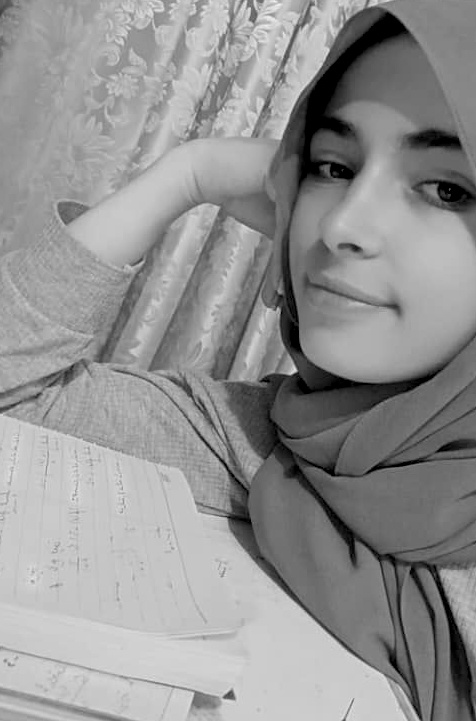 Leaving my family, ClimbAID and the Bekaa felt like leaving a piece of myself behind. I thought I was ready for the challenge—studying architecture to build a future for myself and my family. But crossing the border into Syria felt like entering another universe. Despite the close geographical distance, the cultural differences were stark. Life on the outskirts of Damascus felt muted, a far cry from the vibrant connections and colourful energy of the climbing community in the Bekaa.
Leaving my family, ClimbAID and the Bekaa felt like leaving a piece of myself behind. I thought I was ready for the challenge—studying architecture to build a future for myself and my family. But crossing the border into Syria felt like entering another universe. Despite the close geographical distance, the cultural differences were stark. Life on the outskirts of Damascus felt muted, a far cry from the vibrant connections and colourful energy of the climbing community in the Bekaa.
In addition to my biological family, I also miss my second family, the ClimbAID community, terribly. Climbing wasn’t just a sport for me – it was my outlet, my way of finding balance in the midst of chaos. It gave me a purpose, a way to give back and a way to belong. As a psycho-social facilitator and instructor at ClimbAID, I felt like I was part of something bigger than myself. Here in Damascus, I find myself in a crowded yet isolated place. I long for connection, for a place to call home, but I’m caught between two worlds—I belong to neither and often feel at home in neither—like an alien on a strange planet.
My mornings start early, often before sunrise. By 5 a.m., I am on the bus, travelling over an hour to reach the University of Damascus. Commuting on unreliable buses, sometimes switching between four different vehicles just to get home, drain me. By the time I return, the sun usually has set, and I barely have the energy to study. Especially in the beginning, my grandmother’s quiet care made those nights bearable—she woke me early, prepared breakfast, and supported me emotionally.
In Lebanon, on my evenings I would review the day’s work, talk with friends, and challenge myself physically and mentally through climbing. Charlie, a role model and dear friend, would push me to climb higher and think deeper. His advice remains a steady compass in my chaotic world until today. In Damascus, that deep sense of purpose is missing today, although I try to immerse myself in hobbies. I’m learning French, listen to BTS, and find solace in Korean music. Drawing and painting have become my lifeline. On some days, I spend hours sketching, channeling my emotions onto paper.
During Eid al-Adha, my father who had come to Syria the first time after our escape 13 years ago, visited his father’s grave. Once lively and decorated with white flowers on this holy day, he found the cemetery deserted and empty. The vibrant community he had imagined was gone. He sat alone among the graves, confronted with the truth that the Syria he longed for existed only in his memories.
My mother, my anchor, remains my greatest support. Though far away, her unwavering encouragement keeps me grounded. She often reminds me of her own sacrifices, having given up her education when she became pregnant with me. Now, she’s living through my experiences, finding pride in what I am achieving. Her words give me the strength to keep going. Even when life feels grey, they reminds me I have a chance to create something brighter—for myself, for her, and for others like us.
A few months ago, my father took the decision to send my mother and siblings also to Damascus, citing the lower cost of living and growing fears of an escalating war in the south of Lebanon. My father, unable to find work in Syria and in order provide for us, remains in Lebanon, sacrificing his beloved time with his family.
Living away from the Bekaa Valley and my community left a deep void inside me. Homesickness, anxiety about war, and uncertainty about the future weigh heavily on my heart. My soul remains tethered to the cliffs and laughter of the Bekaa, even as my body stays in the suburbs of Damascus.
I don’t want to stay in Syria, but I can’t return to Lebanon. Yet, I hold onto hope—a hope that someday I’ll find my way back to the people, climbing , and to a life that gives me purpose.
Hiba Askar
Damascus, November 2024
Hiba Askar
Between Two Worlds
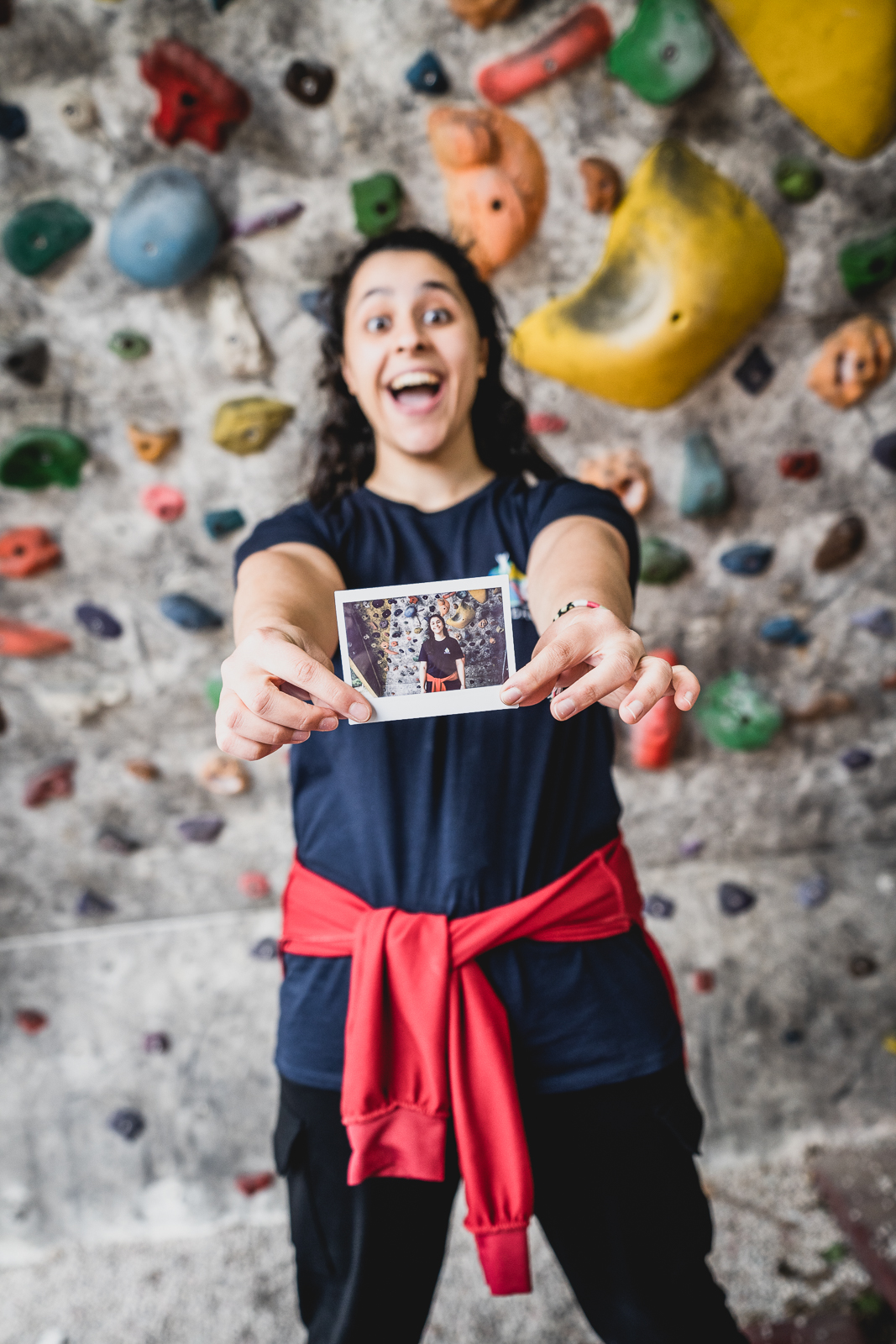
Becoming a Humanitarian
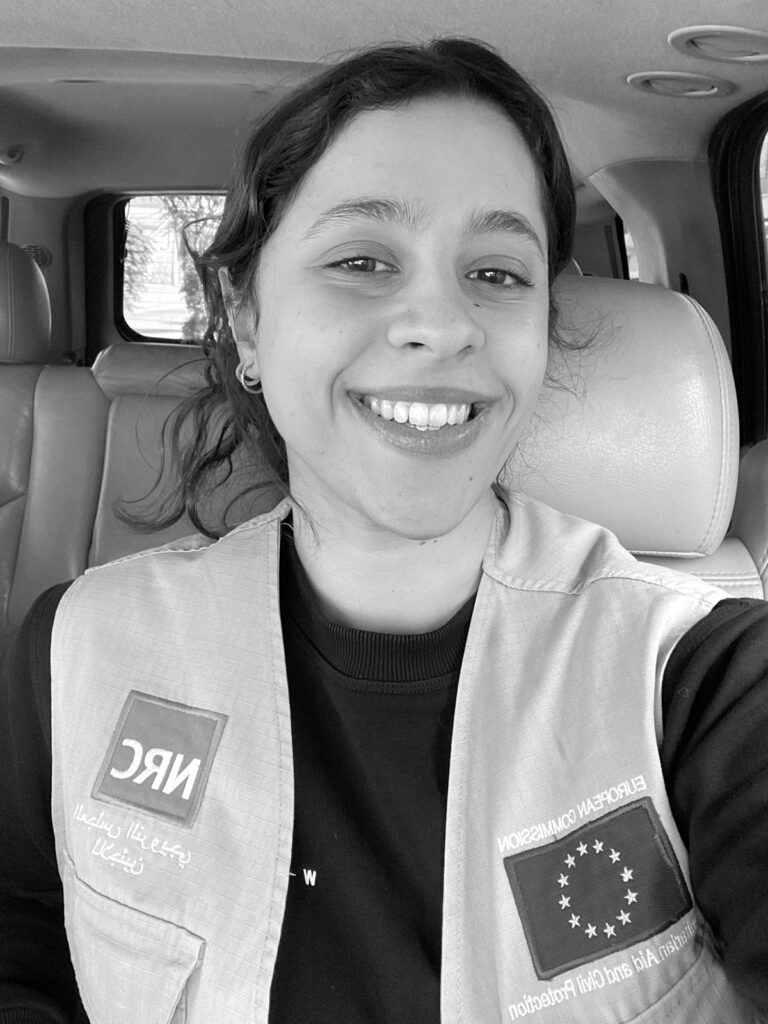 Lebanon is currently enduring some of the hardest times in its history, caught in the grip of war. Despite the personal growth I’ve experienced through work, climbing, and my studies, the situation around us has heavily restricted our dreams. We no longer plan for the future; instead, we live each day uncertain of what tomorrow might bring.
Lebanon is currently enduring some of the hardest times in its history, caught in the grip of war. Despite the personal growth I’ve experienced through work, climbing, and my studies, the situation around us has heavily restricted our dreams. We no longer plan for the future; instead, we live each day uncertain of what tomorrow might bring.
The most significant impact of this war has been the overwhelming lack of safety. I no longer feel safe moving around, whether near my workplace or where my friends live. I avoid public transportation, once a reliable means of travel, due to the constant fear that the bus I’m on could be bombed. Now, I rely solely on car or tuktuk, trying to minimize risks, but the fear never fully leaves.
Adapting to this new reality has been incredibly difficult. Honestly, I’m not sure I’ve fully adapted at all. Fear lingers everywhere, and it has become a barrier in my work, especially when trying to help people forced to evacuate their homes.
After nearly a month of war, my role with the Norwegian Refugee Council (NRC) shifted to providing education in emergencies, a new responsibility filled with its own challenges. We began offering support to children living in shelters—children who fled bombed homes and entire villages. These children have endured unimaginable trauma, and our goal was to create a safe space for them, even if only for two hours a day.
The tools I learned as a volunteer and facilitator at ClimbAID have been invaluable in this work. Through activities designed to help them cope, build relationships, and express their emotions, I applied the communication and psychosocial support skills I developed at ClimbAID. Teaching them to express their feelings, guiding them through meditation, and hearing them talk about how much these practices have helped them—these moments remind me why I love my job, even amid the chaos of war. It’s not easy, especially when working with children who’ve experienced such trauma, but knowing that I’m making even a small difference in their lives makes it all worthwhile.
The weight of this war is exhausting. We are all tired—tired of the fear, tired of losing loved ones, and tired of waiting for this endless cycle of violence to end. We long for our simple right to live, to feel safe, and to move freely. We want Lebanon to become a place where people can dream again, where children can grow up without fear, and where the land, culture, and life we cherish can thrive once more.
ClimbAID has been instrumental in shaping who I am today. I started as a participant, then became a volunteer, and eventually an employee. Over the years, I’ve developed invaluable skills—communication, leadership, problem-solving, and team-building. My experiences with ClimbAID not only introduced me to humanitarian work but also deepened my love for helping others. They played a crucial role in my decision to pursue psychology and work in this field.
Climbing remains a central part of my life. It’s not just a sport—it’s my safe space. It’s how I cope with life’s uncertainties and find balance amidst the chaos. Being at ClimbAID at The ARC with my climbing community, surrounded by people who share the same passion, brings me immense joy, keeps me grounded, and offers a brief escape from the world outside.
Sabine Safieh
Bar Elias, November 2024
Sabine Safieh
Becoming a Humanitarian

Weightless and Grounded
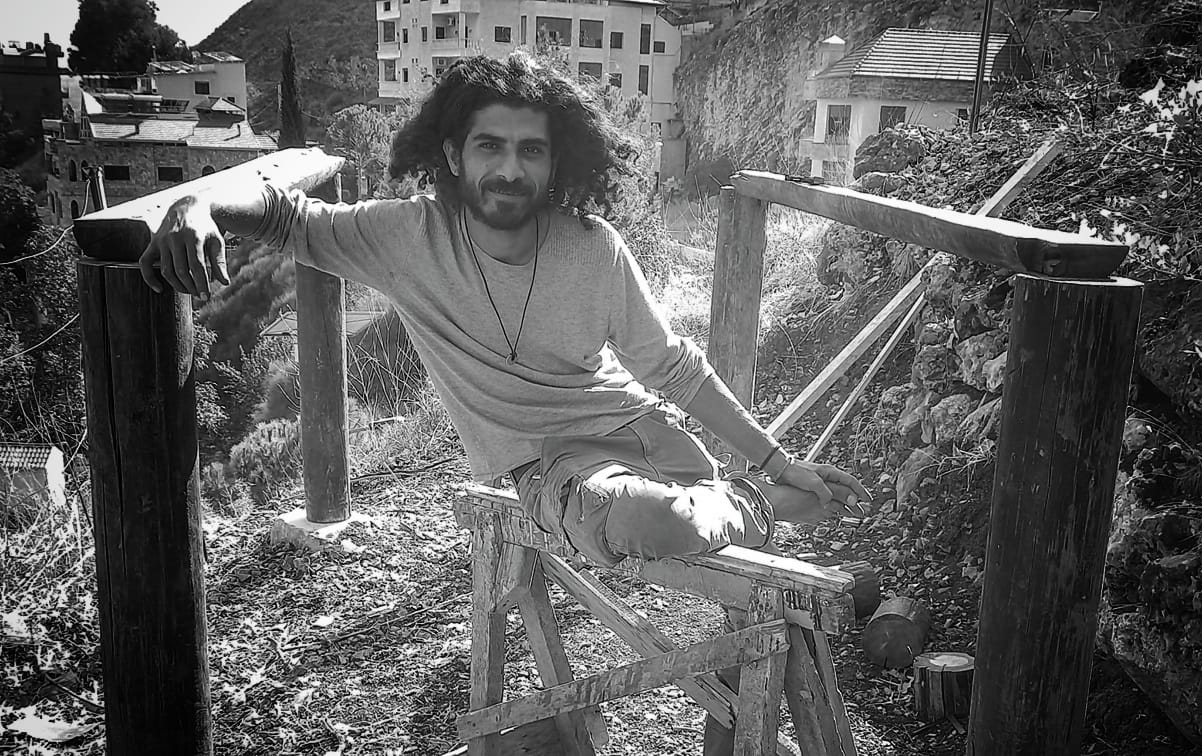 While I’m writing this, I hear the sound of a drone. It’s one of those that leaves us waiting for the nearby explosion. It’s hard to concentrate, but the release of Sama has been bringing me back to those days two years ago.
While I’m writing this, I hear the sound of a drone. It’s one of those that leaves us waiting for the nearby explosion. It’s hard to concentrate, but the release of Sama has been bringing me back to those days two years ago.
I want to tell you a little about my life since then, but it’s not an easy story. Over the last two years, I struggled with poor mental health and became homeless because I could no longer afford rent. Things took a turn for the better when I began volunteering in a school project for children, teaching basic literacy and numeracy through activities connected to growing vegetables and fruits. As part of the project, I was offered a place to stay in their volunteer house.
Their joy brought energy back into my life, but it seems that life had other plans for me. In early 2024, I had to go to the hospital for surgery. I live with chronic pancreatitis, which has affected me since childhood; however, this year it became worse. I continued doing my best to be there, volunteering with the project, and eventually returned to ClimbAID and climbing.
Climbing is as natural to me as flight is to a bird. I feel weightless, carried by the wind as my body dances over the wall. It gives me energy and strength, and sitting at the bottom of the wall with my friends feels like being home with family. I remember a day we all spent together during this time. It felt natural and right to be there alongside everyone. I climbed a lot that day, but when I arrived home, the pain in my stomach returned. It turned out to be much more severe, once again taking climbing out of my life for a while.
I now work on an eco project, crafting with wood and other natural resources. Nature brings me happiness—living among the trees, feeling the mud and rocks beneath my feet each day. I feel alive as my hands give new life to each piece of wood. Arriving here felt like a part of me began to heal. Dreams of a future, even here in Lebanon, began to visit me. I found strength in my connection to nature and in living alongside others like me.
Shortly after settling at the eco project, the war in Lebanon worsened, awakening old feelings and traumas. Each night, I lie in bed fighting panic as drones circle overhead. Like many around me, this war brings back memories of the war in Syria and the time we fled it. Even surrounded by the beauty of nature, it’s hard to stay afloat.
I still try to climb, as my body aches for it. Each time my fingers touch the wall and my hands grip the hold beneath them, I can feel a future running through my forearms. With each muscle flexing, it builds hope for another life. For a while now, I have been trying to find ways to leave Lebanon. My heart, body, and soul need rest—I need a break. Writing this, a friend who is helping me asked, “So what is keeping you going?” I think this is the hardest question to answer. I feel at a loss. I’ve tried everything, even the darkest paths you can imagine, to escape my life in Lebanon, but I’m still here. It feels like I have no choice but to keep going.
Regardless, I still see the beauty in life. I feel the grip of each hold as I climb, rocks digging into my skin, reminding my body of the life within it. I feel elation with each move as my body glides over the wall. I feel the joy of the children and the natural materials I work with—energy and happiness coming from such innocent simplicity. I feel my connection with nature and the earth beneath my feet. Each new life born out of the wood I shape takes on its own story. I feel the community around me and the mountainside I now call home.
They say every story has a beginning and an end. I’m just not sure where mine began, and I don’t know where it will end. I love the world and all the lives within it. I suppose, like so many who have been displaced from their homes, I find myself still searching for my place within it.
Yehya Alzaid
Zahle, November 2024
Yehya Alzaid
Weightless and Grounded

Routes for Peace
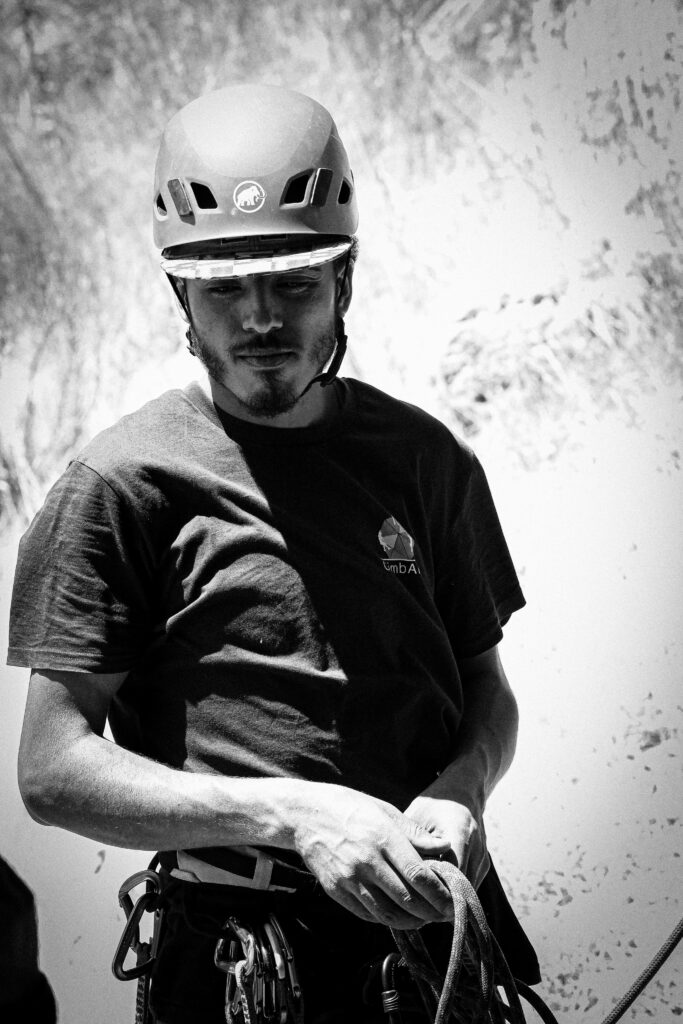 My journey in 2024 has been one of creating impact and change, not just in the world of climbing but in the lives of displaced and vulnerable individuals. This year, I found opportunities to make a real impact through my passion for climbing, contributing to the development of others and building meaningful human connections.
My journey in 2024 has been one of creating impact and change, not just in the world of climbing but in the lives of displaced and vulnerable individuals. This year, I found opportunities to make a real impact through my passion for climbing, contributing to the development of others and building meaningful human connections.
One of the most memorable experiences was the “Routesetting for Peace” workshop, where Lebanese and Syrian climbers came together to improve our routesetting skills and collaborate on setting routes both individually and in teams. Every hold we placed became a symbol of collaboration, unity, and peace. For me, this wasn’t just training—it was a journey that deepened our bonds and helped build bridges of understanding and compassion.
A major milestone was bolting and sending a 7A+ route in Wadi Al Dalm, named “Academy Strong.” This route reflects the strength and unity of my team and stands as a testament to my determination to challenge them while fostering values of cooperation and compassion. Opening new routes has become more than just a skill for me—it’s a way to tell a story, encourage innovation, and strengthen the bonds within the climbing community.
This summer, I also had the chance to serve as an assistant coach in rock climbing courses, teaching climbers top-rope techniques. These sessions boosted climbers’ confidence and emphasized the importance of teamwork. Psychosocial support sessions were another key part of my work, where I worked with children and youth, aged 4 to 26, particularly those displaced from Baalbek and other devastated areas of Lebanon. Using climbing as a tool, these sessions became safe spaces for self-expression and confidence-building.
The war in Lebanon added new layers to these challenges, stirring old wounds and memories from the war in Syria. I remember the day my school exploded as I was walking to it. Lives were lost in an instant, and I was powerless to help. War strips everything from you: safety, dreams, and even the right to choose your own path. The thought of returning to Syria fills me with fear—either forced conscription or an exorbitant fee I can’t afford await me.
The greatest issue in our region is the corrupt politics, power-hungry parties, and armies that remain silent while people suffer. Innocent lives are lost, families are torn apart, and childhoods are stolen. Change begins when we realize that humanity is greater than politics or power. We must respect each other’s rights and work together to build a world founded on cooperation and peace. Only by breaking the cycle of violence can we dream of a better tomorrow.
Through all of this, Moukhefi, the climbing space we call The Arc, has been central to my life. It’s more than just a venue; it’s a sanctuary for me and many others. It’s where my dreams have been nurtured, where joy and resilience have flourished.
I’m deeply concerned that we may lose this space due to Arcenciel’s plans to expand their center. Losing it wouldn’t just mean the loss of a place to climb—it would be the loss of a home where people have laughed, grown, and challenged themselves. Imagine standing in our shoes and reflecting on the value of this place that brought us—many of us who have lost our homes—together, inspiring us to become a community and our best selves. I would do anything to keep this home alive, and I implore the climbing community to help us.
I continue to find a way forward, holding on to hope and the desire for a better future. Each time my hands grip the rock and my body moves over the wall, I feel a sense of renewal. Climbing reminds me that I can keep moving forward, even when the path ahead seems impossible.
My story is far from over. Everything I’ve shared so far is just one chapter in a larger, deeper journey. There are unfinished details, unrealized dreams, and new challenges ahead. If my story resonates with you, I hope it inspires you to believe in the power of change. Together, we can write the next chapter.
Hassan Shehadeh
Taanayel, November 2024
Hassan Shehadeh
Routes for Peace
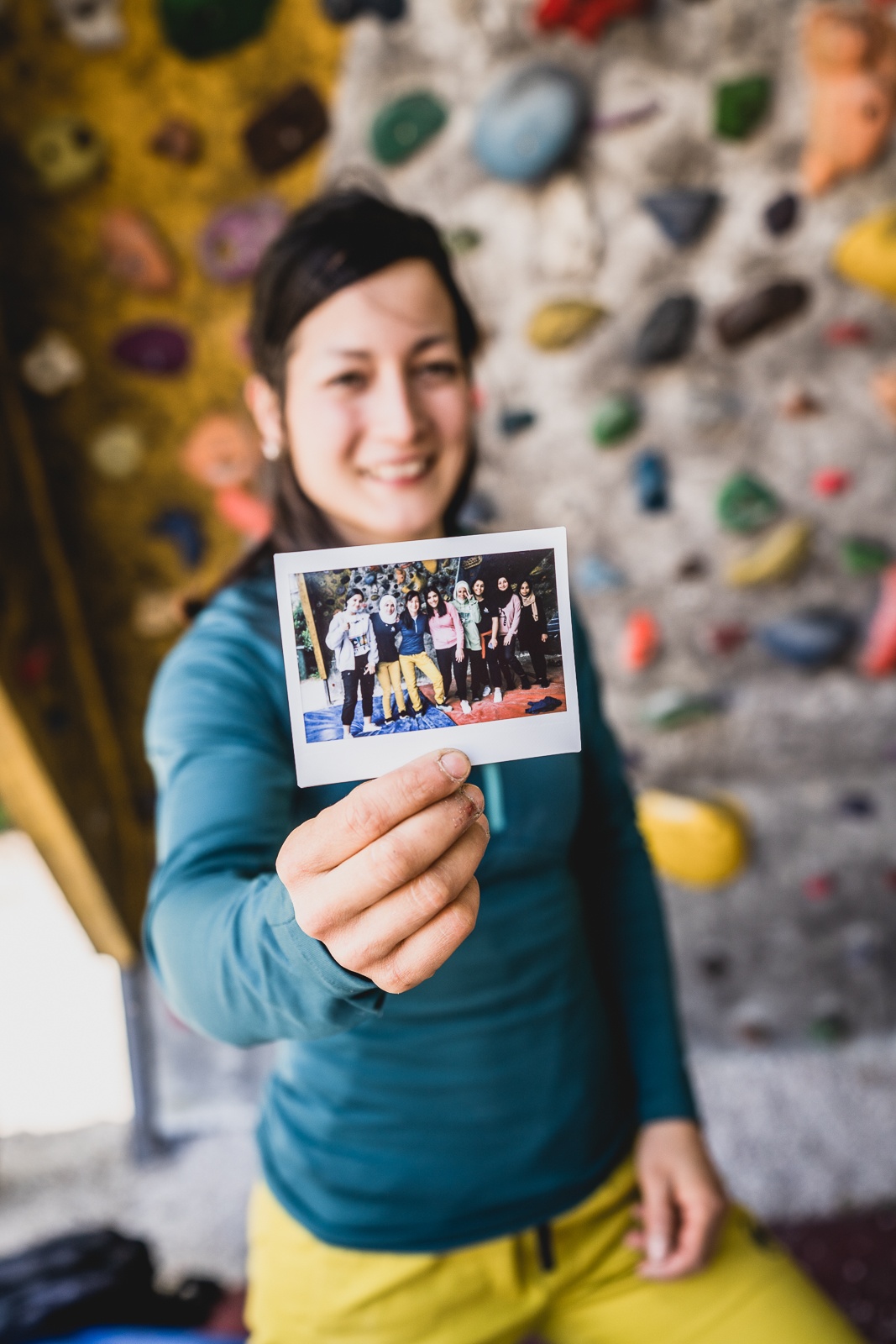
Crossing Borders Through Climbing
In 2019, when Beat Baggenstos, founder of ClimbAID, first contacted me, I was immediately drawn to his project. Until then, my climbing trips had always been about personal challenges—pushing my limits, exploring new routes. But ClimbAID gave me a chance to share my passion with young people who lacked the privileges I had growing up.
That year, I visited Lebanon for ClimbAID’s annual climbing competition. I returned in 2022 with my photographer friend, Hugo Vincent, eager to reconnect with the community.
From the moment I arrived, I felt the weight of Lebanon’s crisis. Power outages, economic hardship, and the lasting scars of the 2020 Beirut port explosion were everywhere. Despite this, life carried on. We spent our first days in Tannourine, where we climbed the stunning limestone cliffs. The drive there was an adventure in itself—traffic laws seemed more like suggestions than rules.
Then, we headed to the Bekaa Valley, where ClimbAID is based. Our temporary home in Zahle, like so many buildings in Lebanon, was unfinished. Each morning, we climbed through empty floors to the rooftop, where the sunrise revealed a breathtaking view of the valley.
At ClimbAID’s climbing wall in Taanayel, I reunited with participants I had met in 2019. One of them, Median, a Syrian refugee, shared how his family had been evicted from the land where their tents once stood. Despite the hardship, his face lit up as he showed me his trophy from the last ClimbAID competition. His sister, who once joined the climbing sessions, no longer participated—her family now considered sports inappropriate for her age. When I showed her pictures from my last visit, she smiled.
Wissam, one of the ClimbAID’s local facilitators, invited me to breakfast in his family’s tent in a refugee settlement. Sitting there, I could barely imagine enduring the harsh winters with little protection from the cold and rain. Yet, amidst these struggles, he spoke of his dream to climb the mountains in the distance. He asked for advice on becoming a better climber—reminding me how universal our passions and aspirations can be.
Back at ClimbAID, I helped leading an outdoor climbing sessions and joined a group of Lebanese and Syrian climbers. Some spoke English or French, others only Arabic, but the language barrier didn’t matter. ClimbAID wasn’t just a sports club—it felt like a second family. Everyone climbed with determination, pushing their limits, supporting each other, and celebrating every small victory.
I also witnessed ClimbAID’s work in empowering women. A group of dedicated young women had been training with remote coaching support from international climbers. Sharing a session with them was inspiring—they were full of energy, eager to learn, and determined to grow stronger.
Before leaving, I hosted a route-setting workshop and a movie night, where I screened Le Marathon de Katherine. The participants were captivated, asking thoughtful questions about overcoming fear, mental resilience, and finding strength in climbing partnerships.
On my last day, some participants gifted me flowers, small letters, and heartfelt goodbyes. I left Lebanon with a deep sense of gratitude. Despite the country’s hardships, the resilience, kindness, and passion of its people left a lasting impression.
Through ClimbAID, climbing has become more than just a sport—it’s a way to build bridges, inspire dreams, and remind us of what truly matters.
A huge thank you to ClimbAID and Mammut for making this journey possible.
Katherine Choong
Roches, January 2025
Katherine Choong
Crossing Borders Through Climbing
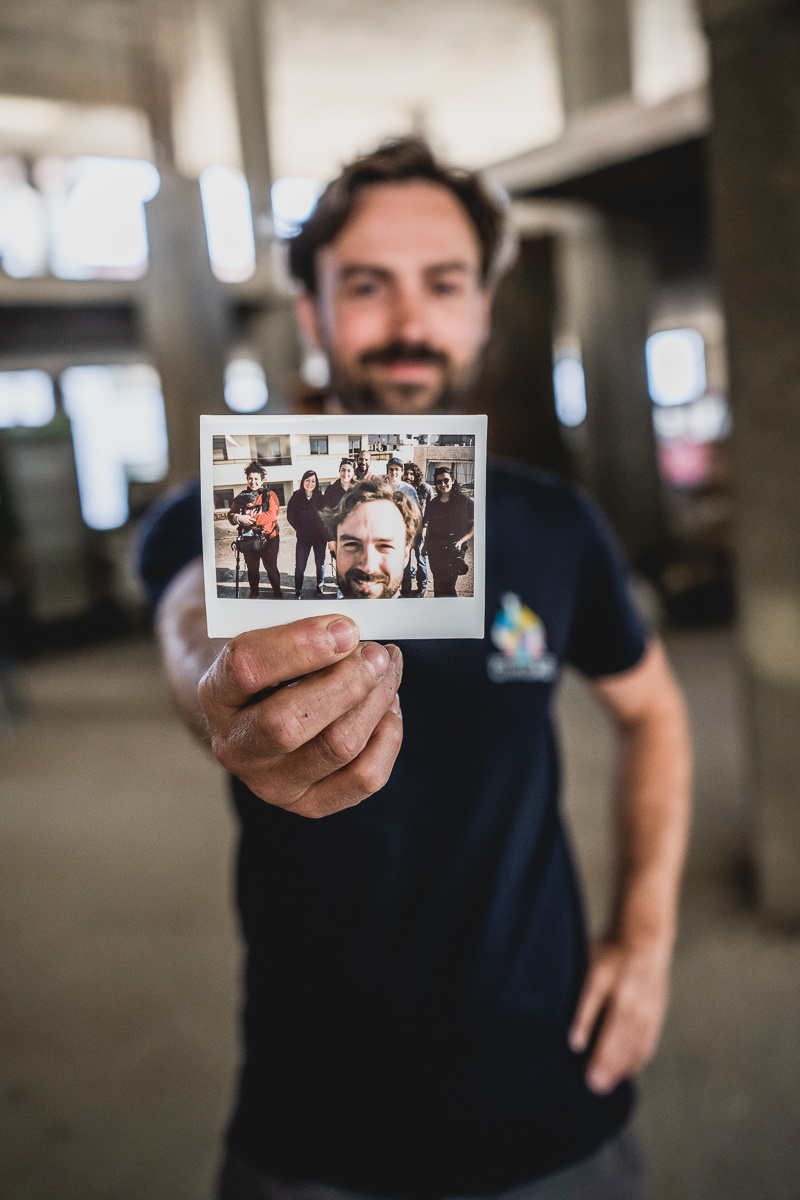
Fighting the Current
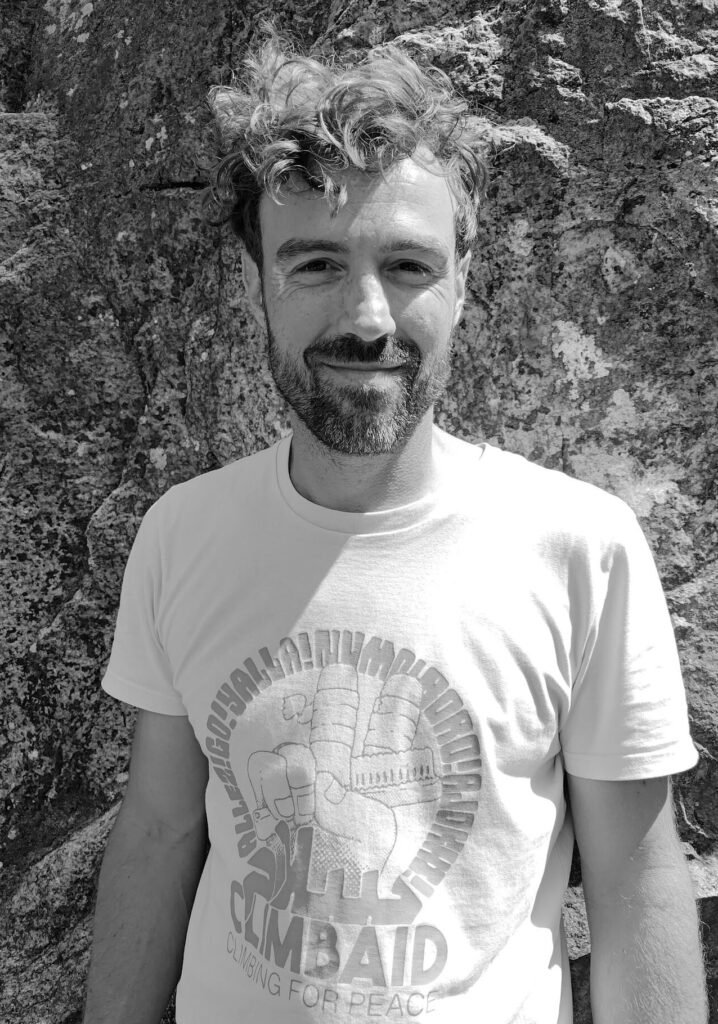 Writing this text brings back memories of 2022—a year that saw us take on our most ambitious project yet. We conducted a controlled trial to evaluate the impact of our psychosocial support programme, YouCLIMB. Without a doubt, it was the most demanding endeavour in ClimbAID’s history. What a shift from the organisation’s early years in Lebanon, when climbers from across the globe joined the Rolling Rock project in the Bekaa Valley—a chapter that came to a sudden halt with the outbreak of COVID-19 in 2020, forcing us to rapidly localise our efforts. This transition not only made the project more sustainable but also more meaningful for those it served.
Writing this text brings back memories of 2022—a year that saw us take on our most ambitious project yet. We conducted a controlled trial to evaluate the impact of our psychosocial support programme, YouCLIMB. Without a doubt, it was the most demanding endeavour in ClimbAID’s history. What a shift from the organisation’s early years in Lebanon, when climbers from across the globe joined the Rolling Rock project in the Bekaa Valley—a chapter that came to a sudden halt with the outbreak of COVID-19 in 2020, forcing us to rapidly localise our efforts. This transition not only made the project more sustainable but also more meaningful for those it served.
By 2022, the local implementation of the study—encompassing 268 participants, 114 PSS bouldering sessions, and 49 outreach and trial sessions—was carried out almost entirely by our local team. They led outreach efforts, conducted surveys, trial sessions, and, most importantly, implemented the collectively developed and continuously improved YouCLIMB curriculum.
As we were preparing for the filming, the Lebanese army launched another campaign to deport Syrian refugees. While the absolute number of these deportations is usually small compared to the 1.5 million Syrians in the country, the psychological impact is always profound. Stories of children waiting for fathers who never returned, and countless other accounts of anguish, circulated within our community. These mostly arbitrary deportations seemed primarily aimed at spreading fear and scoring political points with certain voters. Upon returning to Syria, male deportees often face imprisonment, torture, or forced recruitment.
The strain on our Syrian team members was visible. When one of them was suddenly detained, I became painfully aware of how endangered their safety was. We had already gathered all our wasta to get him out of prison when, just as inexplicably as he had been imprisoned, he was released the same day. This experience made me acutely aware of how little I could actually do to protect my team from such attacks. It also emphasised the risks they were exposed to, affecting their lives and their sense of security.
Lebanon’s ongoing economic collapse was taking a brutal toll. Increasing numbers of children and elderly people could be seen sleeping on the streets, begging. Men scavenged through rubbish bins for food. Roads became more dangerous as potholes and mechanical failures multiplied, and tempers flared faster. Minibus drivers kept clubs at arm’s reach to enforce rising fares or settle traffic disputes by force. Families who had once taken weekend trips to Paris now queued for hours for fuel or bread. Political chaos deepened the unease. In 2023, a daylight saving time debacle divided the country into different time zones—a perfect symbol of the incompetence of the ruling class of ex-warlords and would-be statesmen.
Today, the situation is even more precarious. As the artist Art of Boo depicts, the current war is the cherry on top of a cake already stacked with corruption, mismanagement, pandemic fallout, and geopolitical interference. The deep despair in Lebanon, ranked among the saddest and angriest nations globally, stems not only from the harshness of the present but from the loss of how things once were. The rug has been pulled out from under people’s feet, leaving them with little to hold onto.
If you’ve read the other stories, you’ll have glimpsed the parallels between ClimbAID’s journey and Lebanon’s. The stability of the years before 2019 allowed us to establish ourselves in the Bekaa. The challenges since then compelled us to adapt and become more resilient, culminating in the achievements of 2022 and 2023. Yet, this resilience was built on shifting sands. Many of our community have left or are planning to leave the Bekaa—or even the country entirely. Even our steadfast partner, Arcenciel, is struggling, and we are struggling alongside them.
Just months ago, before the war between Hezbollah and Israel escalated, we had been working on a new project aimed at bringing mental relief to youth in partnership with an international healthcare organisation from 2025. Now, that project is stalled. Our focus is on preserving what remains: access to our climbing wall in the Bekaa, a space our community has come to see as a home, a refuge in a world once again dominated by the ominous humming of drones, bone-shaking jet sounds, and explosions of bombs.
The challenges are immense, but we will persevere.
Beat Baggenstos
Kriens, November 2024
Beat Baggenstos
Fighting the Current
Watch the Trailer
Upcoming Screenings
Screening & Discussion at Minimum (Zurich)
March 20th, 20:00
Screening & Discussion at Public Library (Chur)
March 21st, 19:00
Screening & Discussion at BOUBA (Baden)
March 21st, 19:30
Screening & Discussion at Open Church (St. Gallen)
March 23rd, 18:00
Screening & Discussion at 2. Magic Mountain Bouldering Festival (Ferrera)
June 6th
Stay informed
Past Screenings
Kendal Mountain Film Festival
Fri, Nov 22nd, 20:30
Sat, Nov 23rd, 14:00
Panjika Cooperative (Leonidio, GR)
Sun, Nov 24th, 20:00
Screening & Podium at O’BLOC (Bern)
Jan 17th, 20:00
Screening & Podium at Grimper.ch (Lausanne)
Feb 4th, 20:00
Screening & Podium at Totem (Vevey)
Feb 7th, 19:00
Join our mission “Climbing for Peace”
Join our mission “Climbing for Peace”

Get Involved
Get Involved!
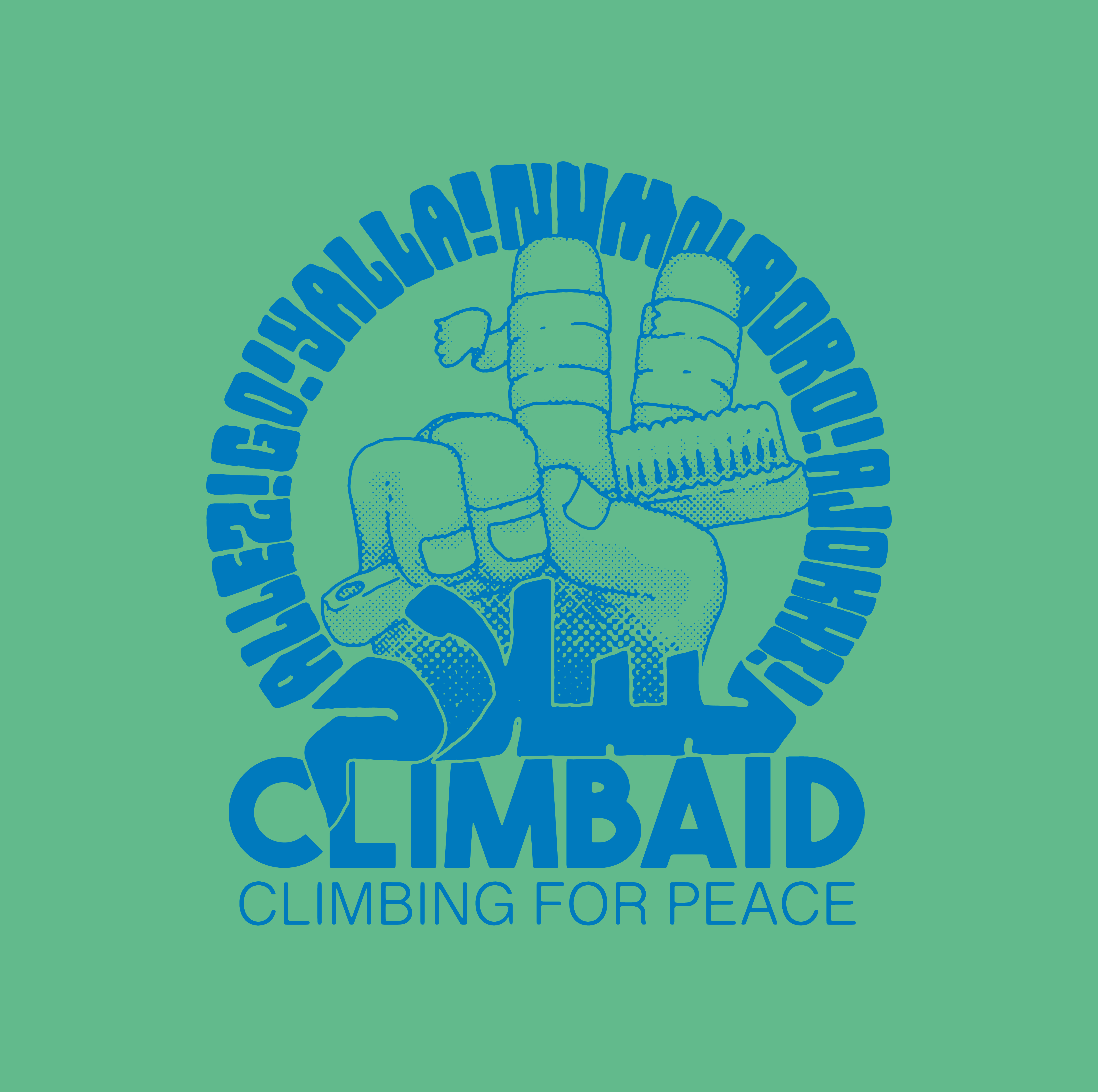
Leave a Pledge
Submit a Pledge for a Better World!
Join Hiba, Sabine, and others from Sama and the ClimbAID community in writing a Pledge for a Better World.
Inspired by their journey, we invite you to commit meaningful actions that bring hope, peace, and positive change to your life, your relationships, your community, and the world.
After review, your pledge will be shared on our Pledge Wall, joining a growing movement of individuals climbing toward a better, more peaceful future.
Click on the displayed pledges to get inspired and join this initiative!
